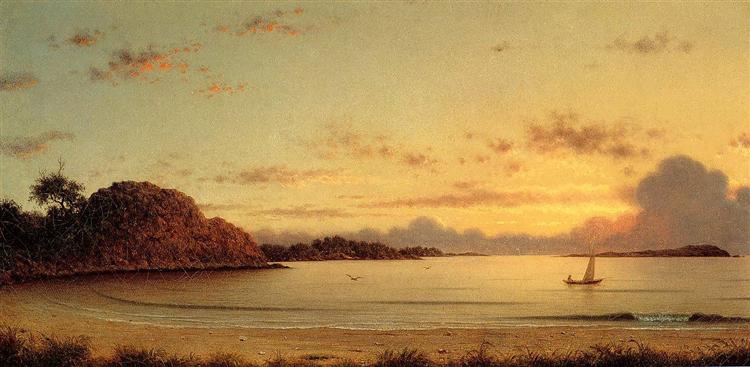
Spiritual Sunday
I came across this thoughtful Edwin Arlington Robinson poem in Harold Bloom’s American Religious Poems. “The Children of the Night” owes a great deal to Tennyson’s spiritual exploration in In Memoriam, finding faith in a dark world that at times threatens to crush all hope. (The poetic rhythm is the same, even though the rhyme scheme is abab rather than abba.)
Robinson is no sentimentalist, and many of the characters he has created live blighted lives (e.g., Richard Cory, Aunt Imogen, Mr. Flood, Miniver Cheevy). Because of this, his declaration of faith is startling.
To be sure, the poem starts off on a dark note, with “those that never know the light” finding themselves lost in the vicissitudes of fortune. These are the children of the night, for whom darkness is a sullen thing. If we become embittered from weighing our sorrow and our strife “in the scales of circumstance,” we might as well drown ourselves. That’s better than sailing forever in the dark.
The poem turns in stanza seven. If we are one of these anguished mortals, then God sees us as “a soul gone mad.” And because God is Justice and Love, he holds out the promise of light. Why are we charmed by twilight? Not because of the gray but because of the sunset’s crimson rays. Why do we find the starry sky sublime? Because we know that it carries within it “the promise of the day.” We thrill to light because we carry light within us.
For all our fears, there is a faith within “that holds us to the life we curse.” Therefore, let us revere this Self “which is the universe.” Instead of hiding our scars, let us throw off our cloaks and declare ourselves to be Children of the Light.
One other note: We should do this, not by clutching to narrow doctrinal creeds that often turn God into a fiend, but by glorifying God’s excellence. Cherishing God is “the common creed of common sense.”
The Children of the Light
By E. A. Robinson
For those that never know the light,
The darkness is a sullen thing;
And they, the Children of the Night
Seem lost in Fortune’s winnowing.
But some are strong and some are weak, —
And there’s the story. House and home
Are shut from countless hearts that seek
World-refuge that will never come.
And if there be no other life,
And if there be no other chance
To weigh their sorrow and their strife
Than in the scales of circumstance,
‘T were better, ere the sun go down
Upon the first day we embark,
In life’s imbittered sea to drown,
Than sail forever in the dark.
But if there be a soul on earth
So blinded with its own misuse
Of man’s revealed, incessant worth,
Or worn with anguish, that it views
No light but for a mortal eye,
No rest but of a mortal sleep,
No God but in a prophet’s lie,
No faith for “honest doubt” to keep;
If there be nothing, good or bad,
But chaos for a soul to trust, —
God counts it for a soul gone mad,
And if God be God, He is just.
And if God be God, He is Love;
And though the Dawn be still so dim,
It shows us we have played enough
With creeds that make a fiend of Him.
There is one creed, and only one,
That glorifies God’s excellence;
So cherish, that His will be done,
The common creed of common sense.
It is the crimson, not the gray,
That charms the twilight of all time;
It is the promise of the day
That makes the starry sky sublime;
It is the faith within the fear
That holds us to the life we curse; —
So let us in ourselves revere
The Self which is the Universe!
Let us, the Children of the Night,
Put off the cloak that hides the scar!
Let us be Children of the Light,
And tell the ages what we are!

